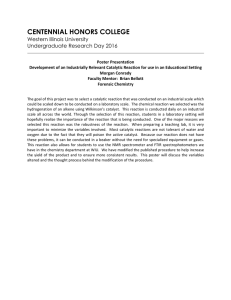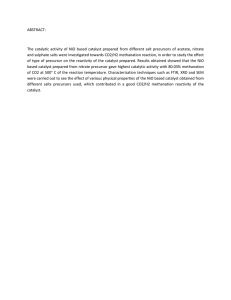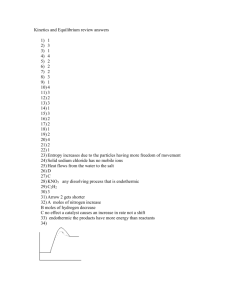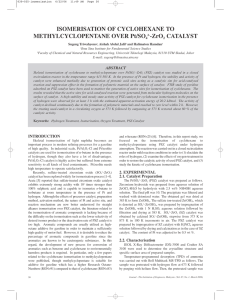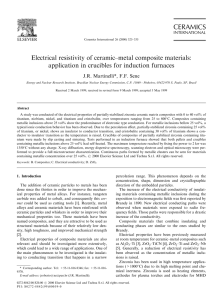Abstract Skeletal isomerisation of cyclohexane to methylcyclopentane over Pt/SO4 2--ZrO2 (PSZ)
advertisement
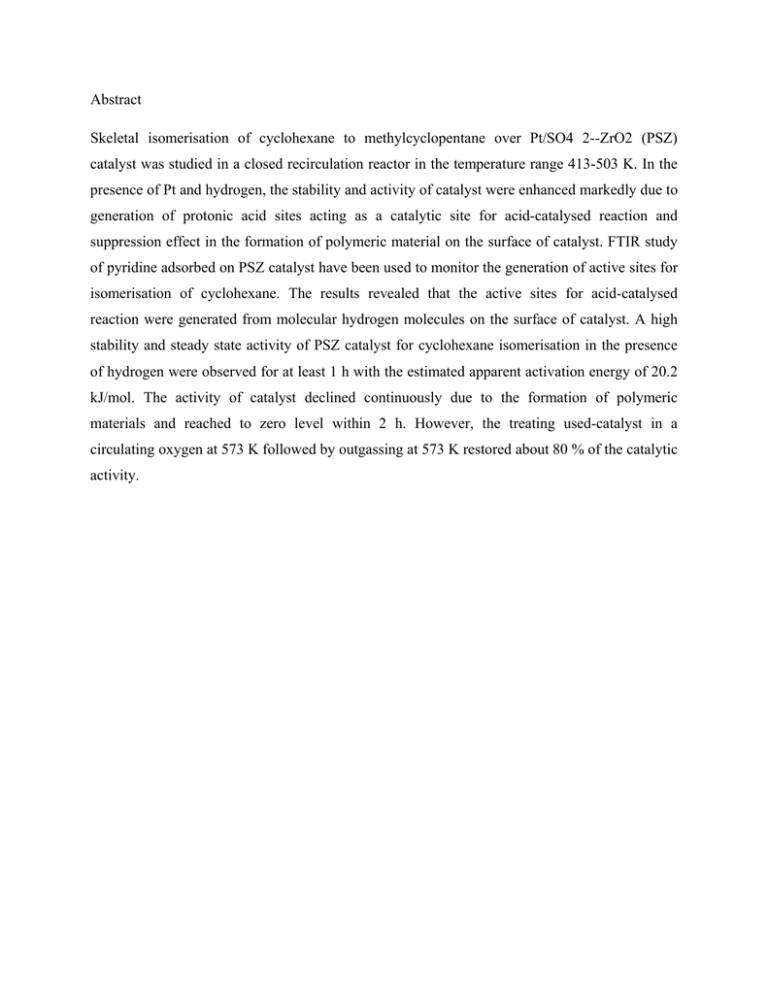
Abstract Skeletal isomerisation of cyclohexane to methylcyclopentane over Pt/SO4 2--ZrO2 (PSZ) catalyst was studied in a closed recirculation reactor in the temperature range 413-503 K. In the presence of Pt and hydrogen, the stability and activity of catalyst were enhanced markedly due to generation of protonic acid sites acting as a catalytic site for acid-catalysed reaction and suppression effect in the formation of polymeric material on the surface of catalyst. FTIR study of pyridine adsorbed on PSZ catalyst have been used to monitor the generation of active sites for isomerisation of cyclohexane. The results revealed that the active sites for acid-catalysed reaction were generated from molecular hydrogen molecules on the surface of catalyst. A high stability and steady state activity of PSZ catalyst for cyclohexane isomerisation in the presence of hydrogen were observed for at least 1 h with the estimated apparent activation energy of 20.2 kJ/mol. The activity of catalyst declined continuously due to the formation of polymeric materials and reached to zero level within 2 h. However, the treating used-catalyst in a circulating oxygen at 573 K followed by outgassing at 573 K restored about 80 % of the catalytic activity.

